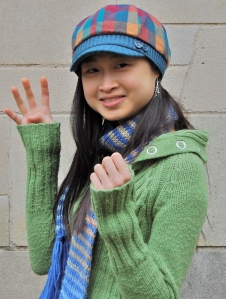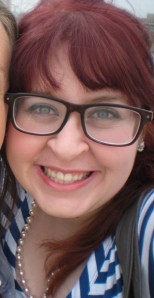CHAT TONIGHT!
We will be hosting a chat tonight at 9 EST. The topic will be ‘getting to know the LTWF girls’, in honor of the fact that we are accepting applications for membership!
You can visit the chat through this link.
~~~
Saturday marked the beginning of Banned Book Week. Here at LTWF we’re dedicating the whole week to awareness about banned books. We’ve got a lineup of fantastic articles, culminating in our announcement of our banned books-inspired book of the month for October on Friday. This coming Saturday we will post pictures of ourselves with our favorite banned books, and pictures that our readers send us. One lucky reader will even get a giveaway prize!
~~~

This week, in honor of our Banned Books celebration, we thought we’d answer the question: What is your favorite Banned Book, and how has it affected your life?
~~~
 My favorite banned book is BELOVED, by Toni Morrison. For me it beats out all the others (even Harry Potter!) because of how much it influenced me as a writer. I think the first copy I ever read was from my teacher’s personal library in high school. I didn’t know much about other writers at that time (though I was calling myself one), and Toni’s forward to the book was part of what convinced me that I was an actual writer, not just crazy. She described the idea for the story coming to her as she stared across her backyard: an imaginary woman climbed up out of the river and leaned against her gazebo. ‘Nice hat.’
My favorite banned book is BELOVED, by Toni Morrison. For me it beats out all the others (even Harry Potter!) because of how much it influenced me as a writer. I think the first copy I ever read was from my teacher’s personal library in high school. I didn’t know much about other writers at that time (though I was calling myself one), and Toni’s forward to the book was part of what convinced me that I was an actual writer, not just crazy. She described the idea for the story coming to her as she stared across her backyard: an imaginary woman climbed up out of the river and leaned against her gazebo. ‘Nice hat.’
The personal way that Toni interacted with her characters really resonated with me as a young writer. When I read the actual book itself, I fell in love. BELOVED is rich and spooky, with characters more complicated and human than any others I’ve ever read. I get why it’s banned: it takes a shockingly realistic look at the trials of real life, and the spiritual emptiness that came for many former slaves. It has abuse, rape, adultery, infanticide, explicit sexuality, and shows various types of segregation and discrimination. And guess what? It was based on a true story.
I can’t understand why anyone would want to cover up such a beautiful story that takes a hard and honest look at life post-slavery. The writing is magnificent, and inspired me to take my own to a new level. There were so many fragments stuck out at me, but the one I want to leave you with is this:
“She cannot be lost because no one is looking for her, and even if they were, how can they call her if they don’t know her name?”
-The Writer Condensing Three Books Into One
~~~
 I got TO KILL A MOCKINGBIRD as a birthday present sometime in late elementary school or maybe early middle school. I can’t remember who gave it to me, but I remember loving it from the very first read. I adored Scout and somehow, identified with her immensely though we were very different. I loved Atticus and Jim.
I got TO KILL A MOCKINGBIRD as a birthday present sometime in late elementary school or maybe early middle school. I can’t remember who gave it to me, but I remember loving it from the very first read. I adored Scout and somehow, identified with her immensely though we were very different. I loved Atticus and Jim.
To be honest, I didn’t catch much of the political or racial themes of the book. It’s kind of like how I read ANIMAL FARM when I was eleven and then when someone remarked in eighth grade about how the book commented on socialism in Russia, I gave them a look like they were crazy. All I’d gotten from the book was a weird but interesting story about…well, animals on a farm.
Does my younger self’s utter lack of understanding of the some of the main themes of these books mean I wasn’t ready for them? That my librarian and whoever gave me TO KILL A MOCKINGBIRD should have told me to wait a few years? I don’t really think so. In fact, I would have loved it if, instead of preventing me from reading these books completely, someone had been open to discussing them with me afterward. That, I think, would have done a lot more good.
Either way, I have since gone back and reread both books, and I’m really glad to have had two experiences with each–the more innocent, simpler version of my childhood, and the one I glean now after having grown up a little more.
edit: Wow–I completely forgot that NORTHERN LIGHTS/THE GOLDEN COMPASS is banned/controversial in some places. You all know how much I love that book!
-The Writer Who Just Signed With An Agent!
~~~
 My favourite banned book, and this is somewhat cliched, is probably FIGHT CLUB by Chuck Palahniuk. This book was the first thing I’ve read which I considered truly subversive — and no, I hadn’t seen the movie — and I’d read a lot of rather edgy realistic fiction before reading this. The central concept of FIGHT CLUB, a bunch of guys getting together and bashing each other up in an attempt to find some kind of spirituality, is disturbing. At the same time, on some levels, it’s also an interesting exploration of the emptiness and dislocation that can occur in a modern world.
My favourite banned book, and this is somewhat cliched, is probably FIGHT CLUB by Chuck Palahniuk. This book was the first thing I’ve read which I considered truly subversive — and no, I hadn’t seen the movie — and I’d read a lot of rather edgy realistic fiction before reading this. The central concept of FIGHT CLUB, a bunch of guys getting together and bashing each other up in an attempt to find some kind of spirituality, is disturbing. At the same time, on some levels, it’s also an interesting exploration of the emptiness and dislocation that can occur in a modern world.
I can see why the book’s been banned. But at the same time, I think that we need books like this that are provocative and gritty. FIGHT CLUB made an impact on me as both a reader and writer — as a reader, it made me seek out other books to challenge and unsettle me, and as a writer it made me appreciate minimalism and the power of a dark, entrancing voice. More importantly, I think, reading banned books that are subversive like FIGHT CLUB, gave me the confidence to unflinchingly explore any subject matter in my own novels.
-The Newest LTWF Contributor Out on Submissions
~~~
 I’m going to go with THE DIARY OF ANNE FRANK on this one. You can tell how much I’ve read it because my battered copy is missing the back cover, and the pages are stained from me eating while I poured over it. I don’t usually dog-tag pages, but these ones are folded over, passages are underlined, and I have notes in the margins. I even have a copy in German, and one in Italian; that’s how much I love this book.
I’m going to go with THE DIARY OF ANNE FRANK on this one. You can tell how much I’ve read it because my battered copy is missing the back cover, and the pages are stained from me eating while I poured over it. I don’t usually dog-tag pages, but these ones are folded over, passages are underlined, and I have notes in the margins. I even have a copy in German, and one in Italian; that’s how much I love this book.
I first read THE DIARY OF ANNE FRANK in fifth grade. Even then, I felt a powerful pull to the book, and it’s stuck with me ever since. People claim that it’s “sexually offensive,” and that the nature of the book is just depressing, but I disagree completely. I always thought Anne’s words were uplifting and hopeful. Despite the horrible things going on around her, she still believed in the inherent good in people. That’s a message I’d think we’d want our kids to understand and take to heart.
My high school actually did this as a play, and it is my most treasured memory from those years. Some of my favorite lines, the ones I often repeat in order to ground myself, seemed even more profound coming from someone’s mouth. It’s amazing to me that one girl could embody so much hope in times of utter despair, and I will never forget the lessons this book taught me.
-The Writer Working on Three Novels At Once
~~~
 I think you might have guessed that my choice would be LOLITA. I can’t remember much of how I first encountered the book; I can’t even remember how old I was when I read it the first time. The thing I do remember is how stunned I was that any book, no matter how brilliantly written, could make me empathize with a character as treacherous and selfish as Humbert Humbert. It was my first experience with an “unreliable narrator,” and LOLITA made me see for the first time that even the vilest villain sees himself as sympathetic. That experience, combined with Nabokov’s incredible prose, the sharp descriptions of the beautiful and the grotesque found in the many suburban American towns through which the main characters traveled, and the irony (and even humor) that can be found in every chapter, gave me my earliest ideas that maybe one day I might want to be a writer.
I think you might have guessed that my choice would be LOLITA. I can’t remember much of how I first encountered the book; I can’t even remember how old I was when I read it the first time. The thing I do remember is how stunned I was that any book, no matter how brilliantly written, could make me empathize with a character as treacherous and selfish as Humbert Humbert. It was my first experience with an “unreliable narrator,” and LOLITA made me see for the first time that even the vilest villain sees himself as sympathetic. That experience, combined with Nabokov’s incredible prose, the sharp descriptions of the beautiful and the grotesque found in the many suburban American towns through which the main characters traveled, and the irony (and even humor) that can be found in every chapter, gave me my earliest ideas that maybe one day I might want to be a writer.
~~~
What Banned Book has affected your life the most?







 It starts with whispers.
It starts with whispers.


 It’s a question as old as time itself: which is better, the zombie or the unicorn? In this anthology, edited by Holly Black and Justine Larbalestier (unicorn and zombie, respectively), strong arguments are made for both sides in the form of short stories. Half of the stories portray the strengths–for good and evil–of unicorns and half show the good (and really, really bad-ass) side of zombies. Contributors include many bestselling teen autho
It’s a question as old as time itself: which is better, the zombie or the unicorn? In this anthology, edited by Holly Black and Justine Larbalestier (unicorn and zombie, respectively), strong arguments are made for both sides in the form of short stories. Half of the stories portray the strengths–for good and evil–of unicorns and half show the good (and really, really bad-ass) side of zombies. Contributors include many bestselling teen autho
 With her rare ability to breathe fire, Jacinda is special even among the draki — the descendants of dragons who can shift between human and dragon forms. But when Jacinda’s rebelliousness leads her family to flee into the human world, she struggles to adapt, even as her draki spirit fades.
With her rare ability to breathe fire, Jacinda is special even among the draki — the descendants of dragons who can shift between human and dragon forms. But when Jacinda’s rebelliousness leads her family to flee into the human world, she struggles to adapt, even as her draki spirit fades.

 When Brie’s sister, Faith, dies suddenly, Brie’s world falls apart. As she goes through the bizarre and devastating process of mourning the sister she never understood and barely even liked, everything in her life seems to spiral farther and farther off course. Her parents are a mess, her friends don’t know how to treat her, and her perfect boyfriend suddenly seems anything but.
When Brie’s sister, Faith, dies suddenly, Brie’s world falls apart. As she goes through the bizarre and devastating process of mourning the sister she never understood and barely even liked, everything in her life seems to spiral farther and farther off course. Her parents are a mess, her friends don’t know how to treat her, and her perfect boyfriend suddenly seems anything but. It might just be me, but I feel like there have been a great number of books lately about girls losing older sisters. So far, none have stayed in my mind and heart like THE SKY IS EVERYWHERE, but LOSING FAITH looks intriguing, and how can I say no to such a pretty cover? Also, I hear there’s something about cults in there, too…hm….
It might just be me, but I feel like there have been a great number of books lately about girls losing older sisters. So far, none have stayed in my mind and heart like THE SKY IS EVERYWHERE, but LOSING FAITH looks intriguing, and how can I say no to such a pretty cover? Also, I hear there’s something about cults in there, too…hm…. Josh is by far the best zombie Torcher around. At least, he is in his virtual-reality zombie-hunting game. Zombies haven’t existed in the real world in more than fifteen years, and the battle to defeat the devastating zombie epidemic is now the stuff of history lessons. Or so it seems.
Josh is by far the best zombie Torcher around. At least, he is in his virtual-reality zombie-hunting game. Zombies haven’t existed in the real world in more than fifteen years, and the battle to defeat the devastating zombie epidemic is now the stuff of history lessons. Or so it seems.



 Oh, I definitely embrace my characters while I write about them. I mean, I’m obviously not going to go around assassinating people while I’m writing from Celaena’s POV in QUEEN OF GLASS, but I definitely channel her feelings, usually by acting out the scenes before/while I write them. I’ve always had a mirror either on or by my desk so I can study my expressions/movements. There’s one scene in QUEEN OF GLASS where Celaena is lying on the ground, half-dead–and you can bet good money that I spent about 30 minutes lying on the floor in front of my wall-sized/giant mirror, trying my best to put myself in her head. It sounds totally bonkers, I know.
Oh, I definitely embrace my characters while I write about them. I mean, I’m obviously not going to go around assassinating people while I’m writing from Celaena’s POV in QUEEN OF GLASS, but I definitely channel her feelings, usually by acting out the scenes before/while I write them. I’ve always had a mirror either on or by my desk so I can study my expressions/movements. There’s one scene in QUEEN OF GLASS where Celaena is lying on the ground, half-dead–and you can bet good money that I spent about 30 minutes lying on the floor in front of my wall-sized/giant mirror, trying my best to put myself in her head. It sounds totally bonkers, I know.




 LTWF Facebook
LTWF Facebook LTWF Twitter
LTWF Twitter